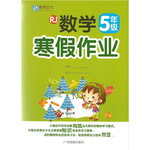题目内容
【题目】Tokyo is one of those places that you can love and hate at the same time.
In Tokyo there are always too many people in the places where I want to be. Of course there are too many cars. The Japanese drive very fast, but in Tokyo they often spend a long time in traffic jams (拥挤). Tokyo is not different from London, Paris and New York in that. It is different when one wants to walk.
At certain times of the day there are a lot of people on foot in London Oxford Street. But the streets near the Ginze in Tokyo always have a lot of people on foot; and sometimes it is really difficult to walk. People are very polite; there are just too many of them.
The worst time to be in the street is at 11: 30 at night. That is when the night-clubs are closing and everybody wants to go home. There are 35,000 night-clubs in Tokyo, and you do not often see one that is empty.
During the day, most people travel to and from work by train. Tokyo people buy six million train tickets every day. At most stations, trains arrive every two or three minutes, but at certain hours there do not seem to be enough trains. Although they are usually crowded, Japanese trains are very good. They always leave and arrive on time. On a London train you would see everybody reading a newspaper. In Tokyo trains everybody in a seat seems to be asleep, whether his journey is long or short.
In Tokyo, I stood outside the station for five minutes. Three fire-engines (消防车) race past on the way to one of the many fires that Tokyo has every day. Tokyo has so many surprises that none of them can really surprise me now.
【1】Tokyo is different from London in that __________.
A. it has a larger population
B. there are more traffic jams
C. it is more difficult to go somewhere on foot
D. night clubs are sometimes empty
【2】Japanese trains __________.
A. often leave and arrive on time
B. are often crowded
C. are the main means people use to travel to and from work
D. all of the above
【3】Where can you find everybody reading a newspaper?
A. At most London train stations.
B. At most Tokyo train stations.
C. On a Tokyo train.
D. On a London train.
【4】Fires break out __________ in Tokyo according to the writer.
A. quite frequently (频繁)
B. only several times a day
C. not very often
D. very __________ seldom
【5】Which of the following is NOT true about Tokyo?
A. The streets become more crowded at 11 : 30 at night.
B. There are more trains than cars.
C. Fire-engines are very busy in the city.
D. Tokyo people are friendly.
【答案】
【1】C
【2】D
【3】D
【4】A
【5】B
【解析】
【1】C 细节理解题。从第二段 It is different when one wants to walk.可知。
【2】D 细节理解题。从第五段 During the day, most people travel to and from work by train.可知 C 是正确的;Although they are usually crowded, Japanese trains are very good. They always leave and arrive on time.可知,A和B是正确的,即:选D。
【3】D 细节理解题。从第五段 On a London train you would see everybody reading a newspaper.可知。
【4】A 推理判断题。从第六段Three fire-engines(消防车)race past on the way to one of the many fires that Tokyo has every day.可推知。
【5】B 推理判断题。从第二段 Of course there are too many cars.可知。

 黎明文化寒假作业系列答案
黎明文化寒假作业系列答案